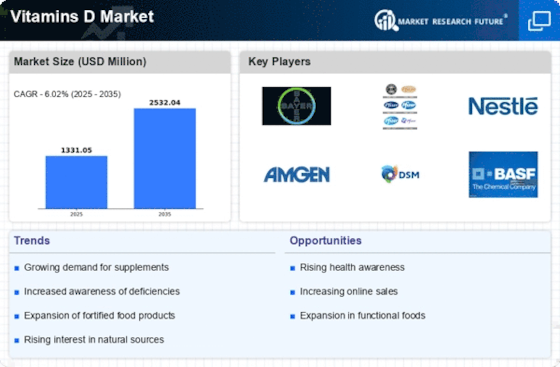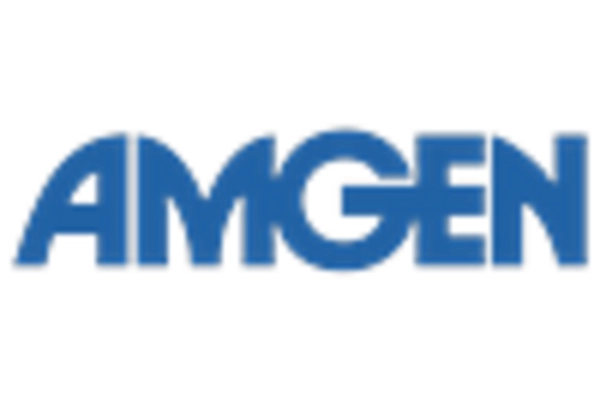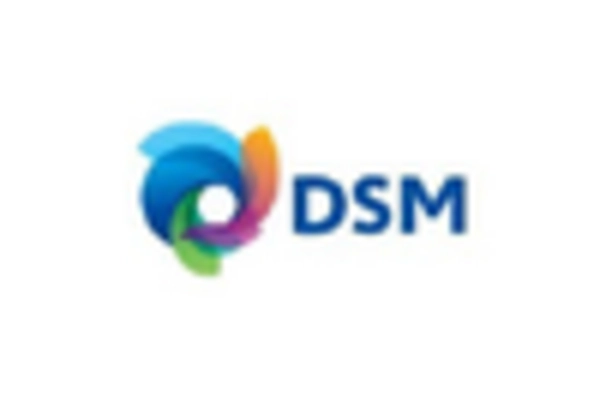Market Trends
Key Emerging Trends in the Vitamins D Market
The Vitamin D market is undergoing dynamic shifts influenced by various factors, including increasing health awareness, lifestyle changes, and a growing understanding of the importance of vitamin D in overall well-being. One of the key drivers shaping the market dynamics is the rising recognition of vitamin D as a crucial nutrient for various physiological functions, including bone health, immune system support, and mood regulation. As consumers become more proactive about their health, there is a growing demand for vitamin D supplements to address potential deficiencies and promote optimal health.
Changing lifestyles, particularly those involving indoor activities and limited sun exposure, have played a pivotal role in shaping the dynamics of the Vitamin D market. Vitamin D is often referred to as the "sunshine vitamin" because the body produces it in response to sunlight exposure. However, modern lifestyles, urbanization, and indoor-based occupations can contribute to reduced sunlight exposure, leading to a higher risk of vitamin D deficiency. This trend has spurred a growing market for vitamin D supplements as individuals seek to maintain adequate levels of this essential nutrient to support various bodily functions.
The aging population is a significant demographic factor influencing the dynamics of the Vitamin D market. As individuals age, there is a heightened awareness of bone health and the role of vitamin D in preventing conditions such as osteoporosis. The elderly population, in particular, often requires vitamin D supplementation to maintain bone density and reduce the risk of fractures. This demographic shift has led to the development of specialized vitamin D formulations targeting the unique needs of different age groups, influencing the market's overall growth.
The increasing prevalence of vitamin D deficiency and related health concerns has prompted healthcare professionals to recommend vitamin D supplementation. This dynamic interaction between healthcare recommendations and consumer awareness has driven market growth, with vitamin D supplements becoming a common component of preventive healthcare routines. The market has responded with a variety of vitamin D products, including capsules, tablets, and liquid formulations, providing consumers with options that suit their preferences and needs.
Preventive healthcare trends and the desire for natural and clean label products have significantly impacted the market dynamics of vitamin D supplements. Consumers are increasingly incorporating vitamin D supplements into their daily routines to support immune health and overall well-being. The demand for clean and transparent labels, as well as a preference for natural and easily absorbable forms of vitamin D, has driven innovation in supplement formulations. The market now offers vitamin D supplements derived from natural sources like lichen or fish oil, meeting the preferences of consumers seeking clean and sustainable nutritional solutions.
E-commerce and digital platforms have played a crucial role in shaping the accessibility and visibility of vitamin D supplements in the market. Consumers can easily access a broad range of vitamin D products, compare brands, and make informed decisions through online platforms. The dynamic interplay between e-commerce and the vitamin D supplements market has facilitated direct-to-consumer sales, enabling brands to reach a wider audience and customize marketing strategies based on consumer preferences.
Globalization and the standardization of dietary supplement regulations have further influenced the market dynamics of vitamin D. As awareness of the importance of vitamin D transcends borders, there is a growing global market for these supplements. The standardization of regulations ensures product safety and quality, contributing to consumer trust in the industry. The dynamic exchange of information and global health trends has created opportunities for supplement manufacturers to cater to diverse markets with vitamin D products tailored to specific regional needs and preferences.
Despite the positive market dynamics, challenges such as concerns about vitamin D toxicity, regulatory compliance, and the need for consumer education on proper supplementation remain. The industry's ability to address these challenges, invest in research and development, and communicate the benefits of vitamin D supplements will determine its sustained growth and success. In conclusion, the Vitamin D market reflects a dynamic interplay of health trends, demographic shifts, technological influences, and industry responses, shaping an environment where vitamin D supplements play a crucial role in supporting the nutritional needs and overall health of a diverse and health-conscious consumer base.


















Leave a Comment